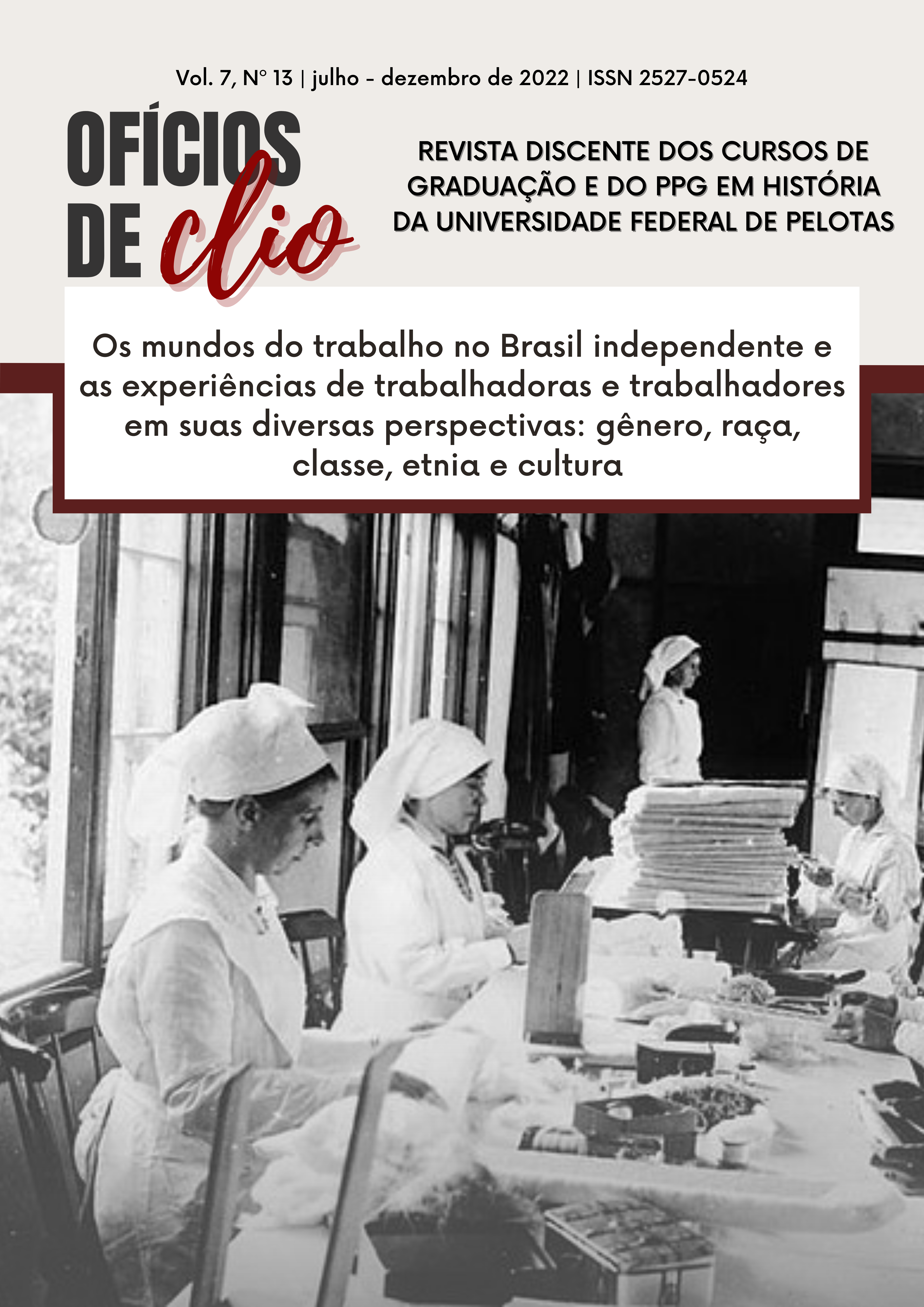Aprimoramento da repressão à ociosidade no pós abolição (1888)
uma questão irremediável
Abstract
This article is focused on the analysis of the fight against idleness in Brazil, after the abolition of slavery (1888). At this juncture, there was an expectation that the former enslaved would generate social chaos, while the process of repression of what was called vagrancy was fostered by the emergence of Project nº 33/1888, authored by the Minister of Justice, Ferreira Vianna. The work used Discourse Analysis as a method to problematize the presentation of Project nº33/1888, concomitantly in the light of the theory of Critical Criminology. It was observed that Project nº33/1888 had a bias of social and racial control, aiming to integrate the ex-enslaved through compulsory work. The article, within its limits, seeks to make a contribution on post-abolition and social marginalization, highlighting the denial of citizenship to certain social strata in Brazilian society.


